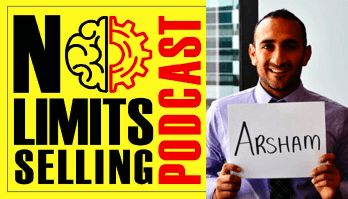Power of Meditation and Work-Life Balance by Arsham Mirshah
Arsham Mirshah (@arshammm) is a co-founder and managing partner of WebMechanix, (@WebMechanix) a performance-based digital marketing & advertising agency. He is the glue that keeps the creative, technical, and administrative teams aligned. This podcast is about power of meditation and work-life balance.
Arsham has been on the cutting-edge of marketing technology for more than 10 years. Now, leading a team of over 40 online marketing professionals, Arsham enjoys executing campaigns and demonstrating ROI with concrete data.
He graduated from UMBC with dual majors in Bioinformatics/Computational Biology and Computer Science.
Podcast Highlights:
- Get a strong 2nd in command. This allows you to focus on essentials
- Organic growth is better than hyper growth
- Hire hungry people that share your values
- Constantly communicate company goals and values to boost team performance

Summary
Introduction and Background
The document is a comprehensive transcript of an interview conducted by Umar Hameed with Arsham Mirshah, the co-founder of WebMechanix. Arsham shares his journey of starting WebMechanix with his cousin, Chris Mechanic, from the basement of his mother's house. He provides insights into his personal and professional life, the company's culture, and the strategies they employ for success.
Growth Mindset
Arsham emphasizes the importance of a growth mindset in their business. He believes in the power of continuous learning and improvement, which has been a significant factor in their business's success. He encourages everyone to adopt this mindset, as it opens up opportunities for personal and professional growth.
Company Culture
Arsham discusses the company culture at WebMechanix, highlighting their "no jerk policy." This policy ensures a positive and respectful work environment, which is crucial for the team's productivity and morale. He believes that a good company culture is a cornerstone for any successful business.
Sales Process
The interview delves into the sales process at WebMechanix. Arsham outlines their systematic approach, which includes discovery, diagnosis, and prescription. This structured process allows them to understand their clients' needs better and provide tailored solutions.
Data-Driven Decisions
Arsham underscores the importance of data in their decision-making process. They use a tool called "Clari" for sales forecasting, which helps them make informed decisions and improve their processes. He believes that data-driven decisions are key to achieving business objectives.
Communication
Effective communication within the team is another topic Arsham touches on. They use a tool called "15Five" to facilitate communication within the team, ensuring everyone is on the same page. He stresses that good communication is vital for team cohesion and productivity.
Power of Meditation and Work-Life Balance
Arsham shares his belief in the power of meditation and its positive impact on his personal and professional life. He also talks about the importance of work-life balance. He strives to maintain this balance by spending quality time with his family and engaging in activities like hiking.
Vision for the Future
Arsham shares his vision for the future of WebMechanix. He envisions the company continuing on its growth trajectory and constantly improving its processes. He is optimistic about the company's future and is committed to its success.
Advice for Entrepreneurs
The interview concludes with Arsham offering advice to budding entrepreneurs. He encourages them to be lifelong learners and not to fear making mistakes. He believes that mistakes are opportunities for learning and growth, and they are an integral part of the entrepreneurial journey.
Questions & Answers
Who is Arsham Mirshah?
What is the story behind the founding of WebMechanix?
What is the importance of a growth mindset at WebMechanix?
What is the company culture like at WebMechanix?
How does WebMechanix approach the sales process?
How does WebMechanix use data in decision-making?
What tools does WebMechanix use for team communication?
What is Arsham Mirshah's view on meditation and work-life balance?
What is the future vision for WebMechanix?
What advice does Arsham Mirshah have for budding entrepreneurs?
Don’t miss this opportunity to transform your real estate career with one-on-one coaching. As an experienced real estate coach, I, Umar Hameed, am dedicated to helping you unlock your full potential and achieve your real estate goals. To learn more about who am I and my clients ↓
If you’re ready to take the next step, book an appointment with me today and begin your journey toward success in the real estate industry.
